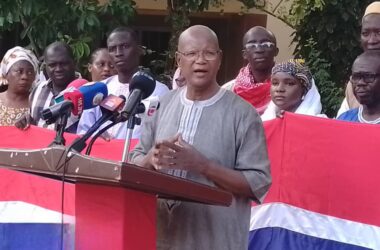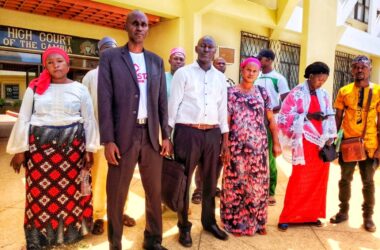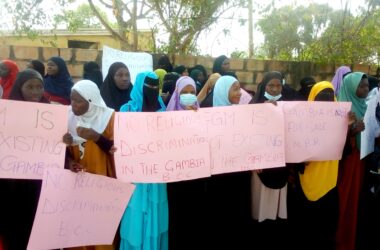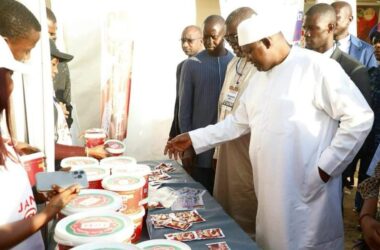By Yaya Dampha
Contrary to earlier assurances by the authorities responsible for purchasing groundnuts produced by farmers in Gambia, the situation on the ground appears to be totally different once again, bringing to light recurrent questions about the authenticity of statements from officials regarding the welfare of the many poor Gambians at the mercy of mere chance. Farmers in provincial Gambia, people whose livelihood depends entirely on farming, with virtually no prospective alternative livelihood, have grown so hopeless that they have now resigned to the unknown. And with conflicting reports coming from the clearly unrepentant authorities with the control of the media, it leaves the condition of the helpless farmers all the more bleak. Like you would expect, they have resorted to mere complaining about the unavailability of adequate funds for the 2009/10 trade season. It is well conspicuous at all buying points across the country. ‘‘This is a shame,’’ Musukebba Manjang, an old lady farmer, said to our source on the ground who sought to gauge the opinion of some farmers. The old woman is among the first people to have taken their nuts to the buying point in her area. But to her dismay, she still can’t get hold of a penny after about four months sweating under the hot sun, all the while blindly motivated by never-to-be-fulfilled political assurances from Banjul. ‘‘We were told that this trade season will be a trade season with a difference, but that is not what is happening,’’ Manjang added. For Almamy Sanyang, every trade season looks like one step forward and ten steps backward ‘‘as far as groundnut marketing is concern.’’ The commodity, besides being the main cash crop in the country, is the only familiar one for majority of Gambian farmers. In the words of Sanyang, “We are entirely depending on our agricultural produce for our survival. So if those produce cannot sell then we are in a dilemma.’’ Describing the situation as a source of frustration for Gambian farmers, Sanyang recalled it had been many weeks now if not more than a month since their produce were bought on a promissory note. And that all they have been told, time and again, is that cash is not available. “When will I get my money to take care of my poor family?’’ the old man enquired blindly. But Sanyang, unfortunately, represents that core of frustrated and hopeless Gambian farmers who have resigned totally to what they see as a fait accompli. No amount of explanation can change their minds. ‘‘As things stand now, we have to take everything in good faith since we have very little to do,’’ he concluded. Our source’s attempt to get any word from any Secco (groundnut buying point) manager proved unsurprisingly futile, as they are said to be dodging questions in a way that suggest they were not part of whatever it is that might be causing the delay in payment. These complaints can however be backed by recent remarks by the National Coordinator of the National Farmers Platform, Maria Adams, who told members at the opening ceremony of their Annual General Meeting that ‘‘the marketing of agricultural produce has really proven to be a problem.’’ Action Aid The Gambia has been a strong force behind the national grouping of Gambian farmers, and its representative at the meeting said although they recognized the effort of the Gambia government towards the issue of helping farmers, ‘‘we would like to urge them to do more in terms of resource allocations to the sector in order to meet the Maputo Declaration of 10% budget allocation.” This is a call Action Aid The Gambia and almost all its affiliate bodies in the country have been echoing for some time now.
Warning: Trying to access array offset on null in /srv/users/jollofnews/apps/jollofnews/public/wp-content/themes/wpzoom-prime-news/functions/widgets/carousel.php on line 39













